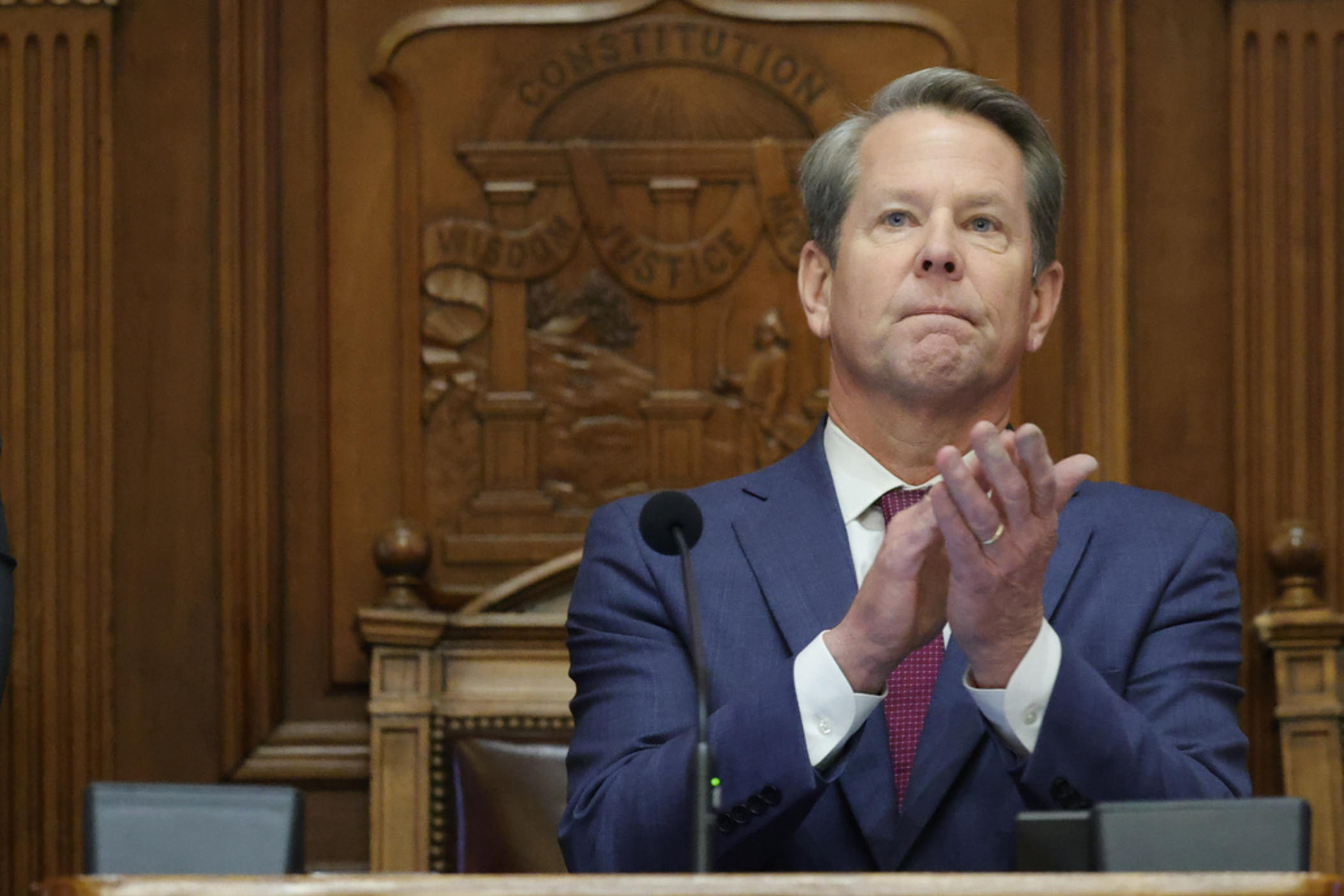Section Branding
Header Content
Georgia Gov. Brian Kemp dangles the possibility of increased state spending after years of surpluses
Primary Content
Georgia Gov. Brian Kemp said Wednesday he's ready to loosen the purse strings after years of huge budget surpluses, reaped partly by holding down spending despite strong state revenue.
In a yearly memo that kicks off the state budget process, Richard Dunn, director of the Office of Planning and Budget, told state agencies they can ask for 3% increases both when the current 2024 budget is amended and when lawmakers write the 2025 budget next year. He also invited agencies to propose one-time ways to spend the state's unallocated surplus, which could top $10 billion once the books are closed on the budget year ended June 30.
All proposals "should be targeted at initiatives that can 'move the needle' on program outcomes, improve customer service, or provide future improvement on how we do business or deliver services as a state," Dunn wrote.
One of the Republican Kemp's strongest powers as governor is setting the revenue estimate, an amount that state law says legislators cannot exceed when writing the state spending plan. Critics of Kemp's fiscal policy, including the liberal-leaning Georgia Budget & Policy Institute, say he has starved state services by setting artificially low revenue estimates.
And while Kemp has dipped into surpluses to give more than $3 million in one-time income tax, property tax and fuel tax breaks, he has conspicuously avoided broader discussion of how to spend, give back or invest the remaining billions in extra cash that state government has banked in the past three years.
Most Georgia agencies took a 10% cut in the 2021 budget, when government officials feared a sharp revenue drop from the COVID-19 pandemic. Instead, federal stimulus programs and inflation fueled higher income and sales tax collections. Agencies saw their budgets increase in 2022 and 2023, but mostly only to raise employee pay.
That means many programs never recovered from the 2021 cuts. The number of state employees has been falling in part because of those cuts, raising questions about whether agencies can adequately serve Georgia's growing population. The state added more than 1 million residents between 2010 and 2020, a 10.6% increase, according to the Census Bureau.
Dunn signaled austerity might not be over for some agencies, saying they should also propose budget numbers that cut spending by 1% and include new efficiencies.
"Even in positive fiscal climates, agencies should strive to find ways to do business better, whether implementing technological efficiencies, reducing unnecessary regulations, or curtailing low-performing or low-priority initiatives," Dunn wrote.
Georgia plans to spend $32.5 billion in state revenue and $55.9 billion overall in the year that began July 1. The difference between the two figures stems mostly from federal funding. State revenue is projected to be level, but overall spending is expected to fall from $61.5 billion last year.
Overall tax collections have cooled in recent months, falling 0.4% in June compared with the same month in 2022. But the state would have to see a disastrous $5 billion drop in tax revenue this year to miss projections. That means Georgia is likely to run a fourth year of surpluses, unless Kemp and lawmakers substantially increase spending or cut taxes.
Georgia's budget pays to educate 1.7 million K-12 students and 435,000 college students; house 49,000 state prisoners; pave 18,000 miles (29,000 kilometers) of highways; and care for more than 200,000 people who are mentally ill, developmentally disabled, or addicted to drugs or alcohol. Education is the state's biggest expense, followed by health care.


